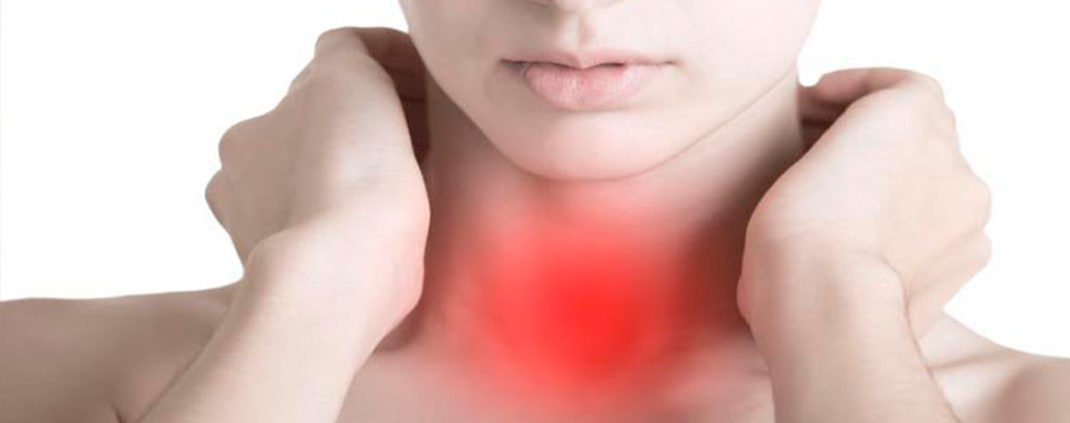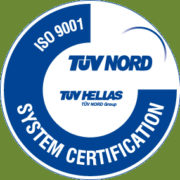Hyperthyroidism
Hyperthyroidism occurs when your thyroid gland becomes overactive and produces more thyroid hormones than you need. This leads to an increased rate of metabolism and the appearance of various symptoms, which, depending on the condition severity, are more or less perceptible to the patient.
What is the thyroid gland?
The thyroid gland is located in the anterior neck; it is a butterfly-shaped organ that is usually visible on inspection. It produces hormones, triiodothyronine (T3) and thyroxine (T4), which mostly controls how your body uses energy (metabolism). The thyroid is controlled by a gland located in the brain, the pituitary gland, which produces thyroid-stimulating hormone (TSH) to stimulate secretion of thyroid hormones (T4, T3). These two glands works together very closely and any functional thyroid disorder influences inversely the production of TSH.
What causes hyperthyroidism ?
- Graves’s disease. It is the most common cause of an overactive thyroid, especially in women of reproductive age (ages 20-40). It can occur at any age in men and women. As an autoimmune disease, ie our immune system produces an antibody that stimulates our thyroid, it may co-exist with other autoimmune diseases in the same patient (Crohn’s Disease, rheumatoid arthritis, celiac disease, type 1 diabetes, etc.). Also, as it is usually observed in autoimmune diseases, there is a family predisposition. Some patients may have eye problems (thyroid ophthalmopathy or Graves’ ophthalmopathy) with exophthalmia, dry eye syndrome, swelling, diplopia and loss of vision in the most severe forms. Smoking is one of the risk factors for the appearance and worsening of ophthalmopathy.
- One or more thyroid nodules that can become autonomous over the years, producing more thyroid hormones and thus causing hyperthyroidism. That is what Endocrinologists call toxic adenoma or toxic multinodular goiter, which can be detected by scan as “hot nodules”.
- In cases where hyperthyroidism is caused by inflammation and destruction of parenchyma, autoimmune etiology (postpartum thyroiditis) or potential viral etiology, usually after respiratory failure (hypoxia).
- Medications: amiodarone, interferon, lithium
- Excessive dosage of thyroxine
What are the symptoms of Hyperthyroidism?
- Weight loss with normal or increased appetite
- Tachycardia and even heart arrhythmia
- Leakage of stool
- Anxiety, irritability, sleeping difficulty
- Shaky hands, sweating, heat intolerance
- Fatigue, weakness
- Menstrual disorders
Diagnosis
Blood test help determine the diagnosis: TSH, Ft4, T3 (Ft3) and visualization by scintigraphy. It may also be necessary to measure antibodies (TSI, anti-TPO & anti-TG) and thyroid ultrasound with triplex to control the inferior thyroid artery.
Treatment
There are three choices
- Antithyroid Drugs
- Radioiodine
- Surgery
The age, severity, cause of hyperthyroidism and the patient’s preference play a role in choosing the right treatment.
Medication
There are two categories of drugs used in the treatment of hyperthyroidism.
Antithyroids such as metamazole (unimazole), carbimazole (Thyrostat) and propylthiouracil (prothuril), which reduce the excessive production of thyroid hormones. We usually prefer the first two because of fewer side effects, excepting the first trimester of pregnancy it is preferred to use propylthiouracil.
Antipyretics are prescribed: a) for a short time to make the patient euthyroid prior to surgery or radioactive iodine (usually in the second case the drugs should be discontinued a few days prior to iodine administration to increase the intake of the radiopharmaceutical and to make possible a thyroid destruction). b) for a longer period (1-2 years) as in Graves Disease in order to achieve to achieve a therapeutic treatment (usually 30% up to 50-60% of patients in milder forms of the disease). After a discontinuation, there is a risk of relapse even after long-term sobriety. That is why we need to proceed to one of the two permanent treatment methods, thyroidectomy or radioactive iodine. All anti-thyroid medicines can cause side effects that your doctor should tell you and regularly measure some biochemical markers. During antithyroid medication, thyroid function should be checked, at least every 1-2 months.
Beta-blockers (mostly propranolol) are the second category of drugs, are prescribed in order to relieve symptoms (tachycardia, tremor, irritation) by gradually lowering the dose until the control of hyperthyroidism is achieved.
Radioactive iodine
Radioactive iodine is used in liquid form or in a capsule and can destroy the thyroid parenchyma, usually within 6-18 weeks. In people with severe symptoms, older patients and those with heart diseases, as previously mentioned, an antithyroid medication should be preceded, which will be interrupted a few days before a treatment. Most patients after radioactive iodine become hypothyroid and they should take a lifelong thyroxine therapy. On the other hand, 10-20% of the patients may need a second dose to see a result of a treatement, usually those with more severe hyperthyroidism and a large thyroid gland. Some patients with Graves’ disease, especially smokers, may experience a worsening of ophthalmopathy after a radioactive iodine. Patients that received a radioiodine should avoid close contact with children and pregnant women for 3 to 7 days after a treatment. A therapy is contraindicated during breastfeeding and pregnancy, while women of childbearing age should be delay any pregnancy for at least 6 months or more, after a radioactive iodine.
Thyroidectomy
Suggested as the first option
- To patients with large goiters (a large thyroid gland) with tracheal compression.
- Abnormal antithyroid treatment due to serious side effects
- The presence of suspected malignant thyroid nodules
- Patient preference
After a surgery, the patient needs to pass regular thyroid function and blood calcium tests. When optimum tests’ results are achieved, monitoring is done 1-2 times a year. Patients should be aware that usually after a surgery a lifelong thyroxine replacement therapy is required.




